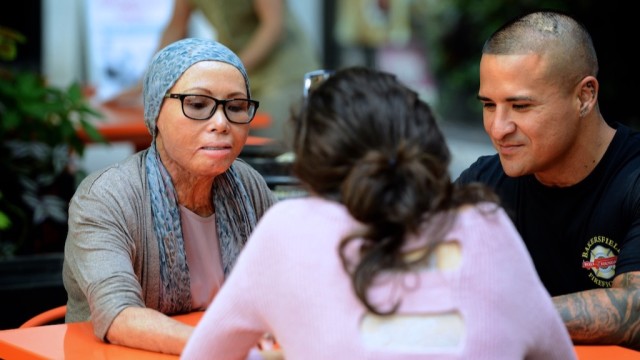Journey Magazine: Edition One 2022
Inside this issue of Journey Magazine...

Going Home After My Burn Injury: What I Wish I'd Known
By: Amber Wilcox
No matter how long you've been in the hospital, the transition to home might be exciting and terrifying all at the same time.
Peer Support is Powerful
By: Rich Casias
In June 1989, I was injured in an aircraft accident in southern Oregon and began treatment at the Oregon Burn Center ICU.
After about two months in the burn center, one of my nurses commented that I was “smiling a lot more” and even becoming “more talkative.” Maybe it was a coincidence, Nurse Tom said, but I seemed to be in a generally better mood—why was that? Could it be related to “that pretty girl who stopped in to see you the other afternoon?”
SIGN UP FOR YOUR FREE SUBSCRIPTION TO JOURNEY MAGAZINE!
Each magazine issue is packed with survivor stories, resource articles, and updates about the organization.
Ask the Experts
In this advice column, a panel of experts draws on their personal and professional experience to offer guidance. Read their answers to questions they frequently encounter from the burn community.
Samoana Matagi: Showing Your Scars
Summer is approaching, and my wife is scared to wear a swimsuit because her scars will be visible. How can I help her feel confident and beautiful?
Dr. Felicia Williams: Pregnancy
My daughter has second and third degree burns to both legs from the knees down. I read somewhere that she can get circulation problems later in life, especially when pregnant. Can you share insight on this and how to prevent these issues down the road?
Dr. Lise Deguire: Nightmares
I’m a year out from my injury and still have horrible nightmares. How long will my nightmares last, and how can I prevent them?
Submit a Question
You've got questions, we've got answers! No question is off-limits. Odds are, someone else is facing a similar challenge, so send us your questions and help the whole community learn and grow.

Joshua Gropper: Attorney, Advocate, Ally
It was 1989. Josh Gropper was in his second year of law school at Boston University, prepping for a final exam, when his dad called. His only brother, Danny, had been trapped in a house fire. It was a rental home with a faulty smoke detector. The result was tragic, and the prognosis grim.









